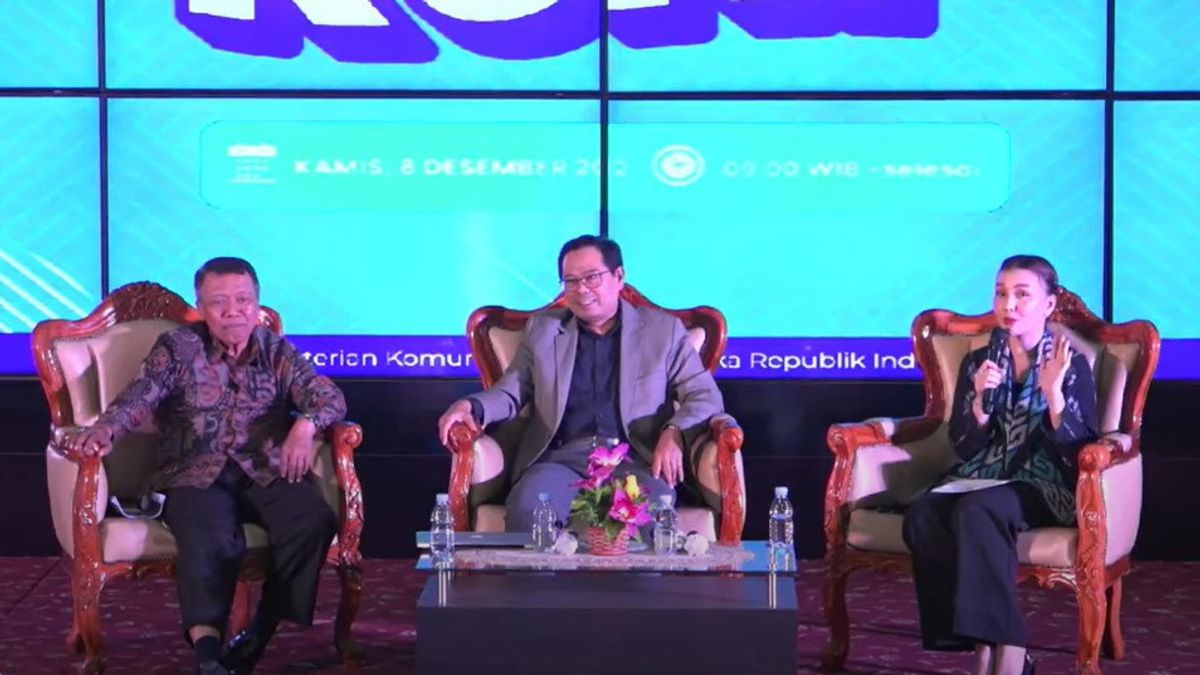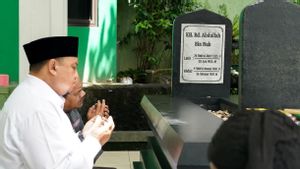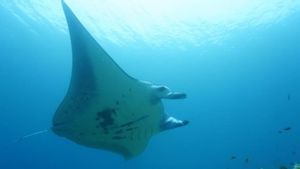The socialization of norms and articles contained in the Criminal Code (KUHP) is the responsibility of all parties, including academics who are in the campus environment.
The Ministry of Communication and Information (Kemenkominfo), through the Directorate General of Public Information (Ditjen) IKP held activities to socialize the Criminal Code in various regencies/cities and involve universities in Indonesia. One of them, in collaboration with Sriwijaya University (Unsri), Palembang, to improve understanding of the new Criminal Code which was legal on December 6.
Deputy Dean 1 of the Unsri Faculty of Law, Mada Apriandi, explained that all elements of society must know and understand all the contents of the articles and norms contained in the Criminal Code. Socialization among academics needs to be done to ensure the truth of information related to the Criminal Code which is widely circulated on social media.
"It is our common obligation, not only the government to provide a correct understanding of the Criminal Code," Mada said in a written statement received by the editor.
In his remarks, Mada continued that the Criminal Code Bill was the longest bill discussed by the DPR until it was ratified. He added that the old Criminal Code was the legacy of colonialism and the longest law was in effect in Indonesia. It is time, the norms in the Dutch heritage Criminal Code need to be renewed at the Criminal Code for the production of the nation's children.
"However, no matter what rules are made by humans, nothing is perfect. Therefore, when we welcome the socialization conveyed by Kominfo. Because, a draft law also needs to be debated," he said.
On the same occasion, the Director of Information and Communication of Political, Legal and Security Affairs, Kemenkominfo, Bambang Gunawan explained that the preparation of the Criminal Code Bill had gone through a long series of processes. His journey involves several regimes of government and increasingly complex problems. He emphasized that at this time the Indonesian nation should be proud because it has succeeded in producing its own KUHP products.
"Indonesia now has a nation-made legal product based on Pancasila. The ratification of the Criminal Code on December 6 yesterday is a historic moment in the implementation of criminal law in Indonesia," he explained.
The ratification of the Criminal Code was conveyed by Bambang, which is the starting point for reforming criminal implementation in Indonesia in accordance with the current dynamics of the community. The Criminal Code, which has just been ratified, has gone through discussions in a transparent, thorough and participatory manner. The government and the DPR have accommodated various inputs and ideas from the public.
"Therefore, we thank the public for their participation in this historic moment," he said.
According to Bambang, the socialization of the Criminal Code carried out by the Ministry of Communication and Information is the responsibility of the government, to provide understanding to the public about the new Criminal Code. Efforts to improve the understanding of the Criminal Code Bill have been running since August in collaboration with the Coordinating Ministry for Political, Legal and Security Affairs (Kemenkopolhukam) and the Ministry of Law and Human Rights (Kemenkumham). And now, it continues after the Criminal Code was only ratified.
Academics at the Unsri Faculty of Law, Ruben Achmad, explained that even though the Criminal Code has been passed into law, debates on crucial articles continue to occur in society. The debate over these articles is the majority in the second book of the Criminal Code. According to him, several articles have potential hazards that have led to multiple interpretations of the application of the Criminal Code.
"One example is Articles 188 and 189 of the Criminal Code, concerning criminal regulation of 4 years in prison for propagators of Communistism and Leninism. Potential hazards are criminal law on insults should not be allowed to protect something abstract and subjective," said Ruben.
Ruben also mentioned the arrangements for articles 218 and 291 regarding attacks on the honor and dignity of the president and his deputy. According to Ruben, the arrangements in the article are not perfect. He said that the change as a complaint offense did not eliminate anti-democracy problems.
"Those are some examples of articles that are continuously debated in the community. But that's okay. Because if not, when we have the KUHP of national products. If there are still those who are not satisfied with what this is made, please use the official route," he said.
Professor of Criminal Law at the University of Indonesia, Professor Topo Santoso, also gave an explanation about the updating of the Criminal Code. According to him, criminal law reform is needed. Through the new Criminal Code, 3 pillars of criminal law are now regulated, starting from criminal acts, criminal responsibility, and criminal and criminal acts.
"Book I of the Criminal Code, there are many doctrine updates that were not regulated in the Dutch era. Criminal acts and criminal liability are regulated in Chapter II of the Criminal Code," he explained.
Professor Topo also explained that the Criminal Code only clearly regulates the reasons for forgiving'' which can lighten a person's sentence. Article 40 stipulates that criminal liability cannot be imposed on children who commit crimes of not 12 years old.
He also emphasized that the KUHP compilation team had followed the principles or theories in criminal law criminalization, which had to be lex scripta, as well as clear and firm lex certa. The Criminal Code was drafted based on the debate of one criminal provision that considers a person's punishment easily or not.
"We prevent people from being entangled from criminal regulations. Including containing provisions that are not ordinary offenses. But complaints. To reduce that possibility," he said.
Also completing, the Academician of the Faculty of Law, Universitas Jember, I Gede Widhiana explained that the special criminal regulation is regulated in Chapter 35. The chapter regulates 5 special criminal categories such as serious crimes against human rights, criminal acts of terrorism, criminal acts of corruption, money laundering, and drug crimes.
"Not everything regulated in the sectoral law will disappear when it is included in a special criminal act of the Criminal Code. The public questions what about the Corruption Act [Corruption Crimes]?
The hybrid socialization of the Criminal Code has been attended by 547 online participants and 100 offline participants. Through this activity, it is hoped that it can forward information related to the adjustment of the Criminal Code to public elements.
On the same day (8/12), the Socialization of KUHP also took place at Batam International University and also invited experts. The hope is that the socialization carried out in various regions in Indonesia can increase public understanding of the importance of the existence of a new Criminal Code, so that it is more in accordance with the dynamics of the people today.
The English, Chinese, Japanese, Arabic, and French versions are automatically generated by the AI. So there may still be inaccuracies in translating, please always see Indonesian as our main language. (system supported by DigitalSiber.id)













